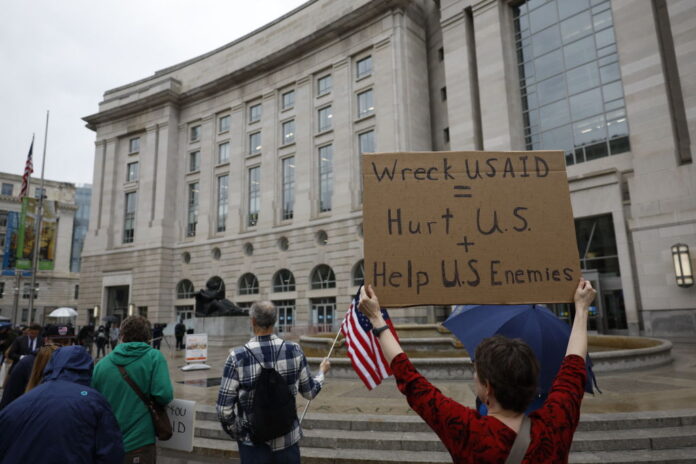The U.S. Supreme Court endorsed a federal judge’s order to the Trump administration to pay U.S. Agency for International Development (USAID) contractors $2 billion.
According to NBC News, the payment does not need to be made immediately, however, this presents a roadblock for President Donald Trump and the Department of Government Efficiency (DOGE) move to cut unnecessary government spending.
The court rejected an emergency application that was filed by the Justice Department after a series of rulings by U.S. District Judge Amir Ali demanded the payments to USAID be unfrozen after they were stopped through an executive order.
Four conservative justices, including Justice Clarence Thomas, Justice Neil Gorsuch, and Justice Brett Kavanaugh dissented from the denial of the application.
Justice Samuel Alito was the fourth justice to dissent the decision, writing that Ali likely lacked jurisdiction over the matter, and noted that he was “stunned” that the other justices were upholding Ali’s rulings.
“Does a single district-court judge who likely lacks jurisdiction have the unchecked power to compel the Government of the United States to pay out (and probably lose forever) 2 billion taxpayer dollars? The answer to that question should be an emphatic ‘No,’ but a majority of this Court apparently thinks otherwise. I am stunned,” Alito wrote.
The government had previously stated it was unable to make the deadline set by Ali for Wednesday night. Meanwhile, the administration has cut thousands of programs, according to NBC News, with an estimated total of $60 billion.
Projects that were affected by the freeze includes the installation of new irrigation and water pumping stations in Ukraine, water upgrades in Nigeria, medical equipment in Vietnam and Nepa, and measures to address malaria in Kenya, Uganda, Ghana, and Ethiopia.
Chief Justice John Roberts previously issued an administrative stay which put the prior ruling on hold until the Supreme Court made a decision.
In the Supreme Court filing, lawyers for USAID contractors said 110 workers have been laid off, while another faces legal exposure for failing to pay severance. They further argued that the Supreme Court has no jurisdiction to get involved in the litigation while it is still in its early stages.
The content in this feed is part of a partnership with IJR.com. While we strive for accuracy, the information presented here may change or be updated. This content does not constitute professional advice or endorsement.


